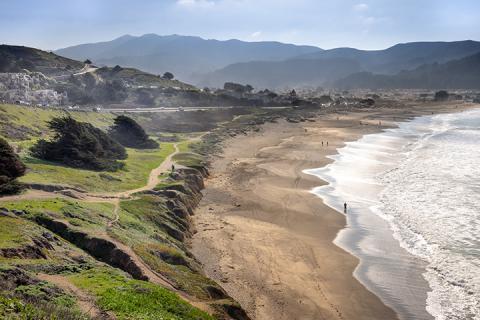
Transitioning from understanding sea level rise vulnerability to identifying adaptation solutions is a significant challenge faced by California coastal decision makers. Nature-based coastal management strategies – such as living shorelines and green infrastructure – can reduce community vulnerability to sea level rise, improve water and habitat quality, provide recreational opportunities, increase carbon sequestration, and decrease maintenance costs. The ecological, economical and environmental benefits of nature-based management strategies make them highly effective responses to climate change, but limited funding and a lack of familiarity and technical support for decision makers hinder effective implementation of nature-based adaptations.
To help decision makers become more familiar with nature-based adaptation solutions, a project team working with the San Francisco Bay and Elkhorn Slough reserves plans to transfer an established nature-based adaptation planning process from the inner bayshore of Marin County, California, where it was piloted, to three primary end users in California. The team will implement a new training module on living shorelines workshops and, in the process, establish consistency in practice and deepen understanding among coastal managers with respect to nature-based coastal adaptation strategies. The new training module and other learning materials and lessons will be shared broadly via presentations, and ultimately incorporated into existing NOAA training materials.
Maya Hayden (USGS, fmr: Point Blue Conservation Science) gives an introduction to "Planning with Nature: Identifying Opportunities for Nature-based Coastal Adaptation Strategies Using the Sea Level Rise Adaptation Framework," a science transfer project funded in 2021 by the NERRS Science Collaborative.